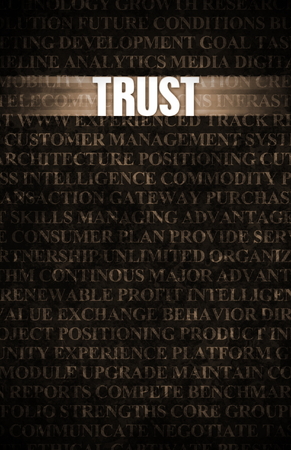As mentioned in Building Trust One Brick at a Time, to begin the process of building trust, one must have an awareness and clear understanding of one’s guiding values.
Having that awareness and understanding of our guiding values also shapes the way we build relationships.
When two people share the same values, trust is formed quickly. When we trust our teammates, our clients, our vendors, and our leaders, our productivity accelerates. If values clash, productivity comes to a screeching halt. That’s why, when sports teams hire a new head coach, most of the coaching staff changes as well. Winning teams have a coaching staff that share common values.
How can we build a rapport with others to form the trust we know is desirable?
- Seek to understand the values of others. Once we get a better view of other’s values, we can begin to understand them as individuals and why they may be feeling what they are feeling As Vadim Kotelnikov, Inventor and Founder of the Ten3 Business e-Coach, asserts “Rapport is the ability to join people where they are in order to build a climate of trust and respect. Having rapport does not mean that you have to agree, but that you understand where the other person or people are coming from.”
- Empathize with others. Empathy means understanding the feelings of others. According to Charles Duhigg in his article, What Google Learned From Its Quest to Build the Perfect Team, team members that are proficient in reading others’ emotions have higher performing results. A high performing team needs a leader who can model empathy and make that a norm of the culture he or she is leading. You can hone your skill of identifying common emotions by identifying your own feelings. See part one of this blog for more information. Next, practice identification of others’ emotions by taking one of several quizzes found online. (I searched for identifying emotions quiz and found several.)
- Seek to understand the journey of others. Conversation is the best way to build trust. Initiate a true conversation of genuine curiosity. Do you know the personal backgrounds of those you led? What is their back-story? Where did they grow up? What about cultural background or birth-order? What did they love to do as a child? Having a conversation helps you build a bond and understand what commonalities you share and provide insights on possible ways to bridge the differences.
Want to form a high performing team? Take the time to talk about values. Seek to understand and empathize.
Trust is the essential foundation to brilliant leadership. Stephen M.R. Covey, in his book, The Speed of Trust, asserts that “trust always affects two outcomes – speed and cost. When trust goes down, speed will also go down and costs will go up. It’s that simple, that real, that predictable.” He affirms, “The ability to establish, grow, extend, and restore trust with all stakeholders – customers, business partners, investors, and coworkers – is the key to leadership competency of the new global economy.”

